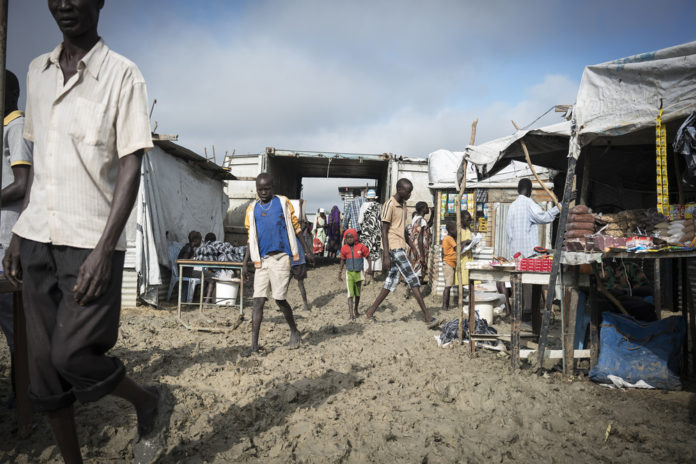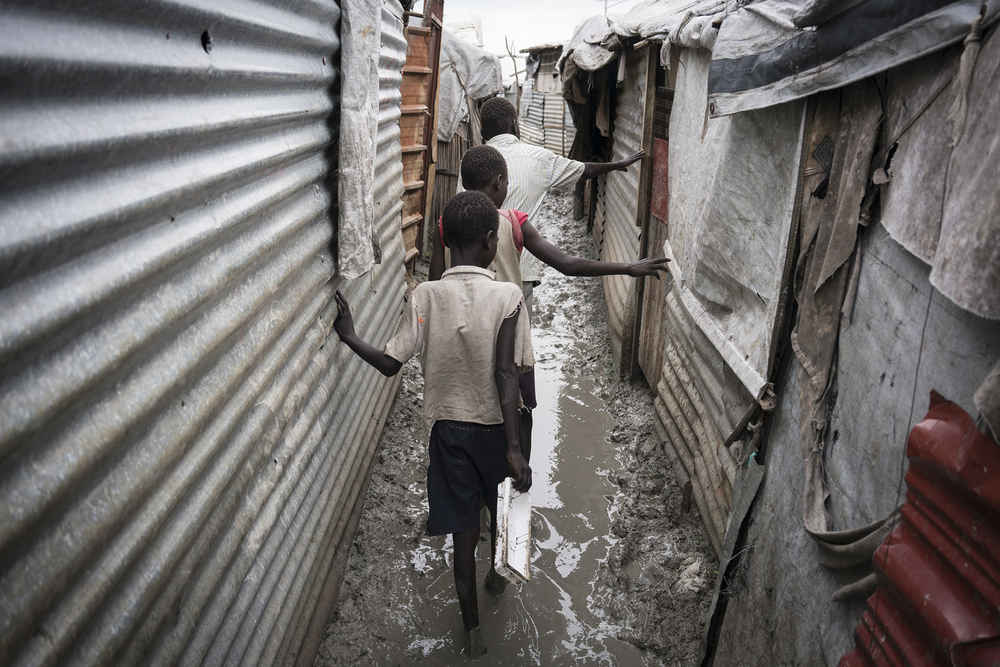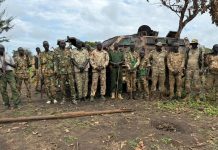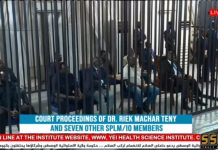
Joshua Craze | The New Humanitarian
Researcher on South Sudan

Why does the government want the camps closed?
The government’s hostility towards the camps is deep-rooted. Since winning military victories in major urban centres in mid-2014, sending people fleeing into UN bases, it has accused the sites of housing rebels, and pressed for them to be closed.
The camps are seen by some within the government as a violation of its sovereignty. They are also a visible indication that some of the civilian population still fear the armed forces.
With the inauguration of the power-sharing government, the government has increased the pressure on the PoCs to close. The COVID-19 pandemic offers an opportunity to further a political goal under the guise of a public health concern.
Where does UNMISS stand?
Given the danger of an outbreak of COVID-19 in the congested camps, UNMISS staff in March “very strongly encouraged people in the PoCs to return home”.The UN peacekeeping mission also said that the threat to those living in the camps, if they were to return home, had “lowered” since the formation of the transitional government.
“We can now prioritise deploying peacekeepers to hotspot locations… rather than tying them down to static duties at protection sites,” said David Shearer, the mission’s top official.
Two recent draft reports published by the UNMISS Upper Nile field office and seen by The New Humanitarian, argue that despite the history of forcible population displacement in Upper Nile state, the PoC camp in Malakal should be closed because “there are no longer threats of physical harm to PoC site residents”.
The mission has long complained that the sites use up too many resources, preventing UNMISS from fulfilling its mandate to protect civilians elsewhere in the country. One UN report in 2019 described the situation in the camps as “untenable” – citing communal tensions, the lack of economic opportunities, and social problems of crime and alcohol abuse.
But an independent report on the PoCs commissioned by the UN’s migration agency, IOM, said UNMISS has never had the capacity to adequately protect civilians outside its bases, and that the sites should not be used as a “scapegoat” for the mission’s wider failings.
Is it safe for camp residents to return home?
Despite the formation of a transitional government in February, there is ongoing conflict in South Sudan that has left many PoC residents worried about leaving.
Since a new cabinet was announced on 12 March, there has been fighting in Western Bahr el Ghazal state (where Wau PoC camp is located), Unity state (where Bentiu PoC camp is located), and Upper Nile state (where Malakal PoC is located).
State governors have yet to be announced by the transitional government. Such an announcement is likely to bring further clashes, as powerful military commanders are competing for these positions. Some civilians also worry that their enemies will be empowered by such appointments. “We fear that the announcement [of the governors] will just lead to more war,” one resident of the Juba PoC camp told TNH.
Shilluk residents of Malakal PoC face a particularly tough situation. From 2013-2017, the local Shilluk population were forcibly displaced from their homes by government forces, and fled to the PoC following what the UN Commission on Human Rights in South Sudan described as “a pattern of ethnic cleansing and population engineering”.
Many PoC residents feel their presence in the UN base represents a last hold on their former land, and that they cannot return to their homes in Malakal because they would face death at the hands of government forces.
Camp residents point to recent attacks and killings of Shilluk civilians – who attempted to resettle outside the PoC site in territory disputed by the Padang Dinka and the Shilluk – as evidence that their security is still not assured if it were to be closed.
Similar difficulties exist elsewhere. After the 2015 peace agreement, Bentiu PoC residents returned to their rural homes only to face a large-scale government offensive that killed thousands.
Much of Bentiu is still in ruins, with the houses of PoC residents no longer standing, and complicated land claims must be resolved before they can begin the difficult process of rebuilding their lives.
Unlike other PoCs, Bentiu includes tens of thousands of people who came from rural areas rather than from within the town. Some people have moved back to their villages in recent weeks. However, rural land is still deeply and violently contested, and the annual season when house-building is possible has now passed. People in these villages are already concerned that those coming from the Bentiu PoC will bring COVID-19 to these relatively isolated settlements and homesteads.
Those who do want to leave the camps often have no home to return to, either in the towns or in rural areas. In Juba, many PoC dwellers have had their homes occupied by others, and it’s unclear if they will be able to get them back.




